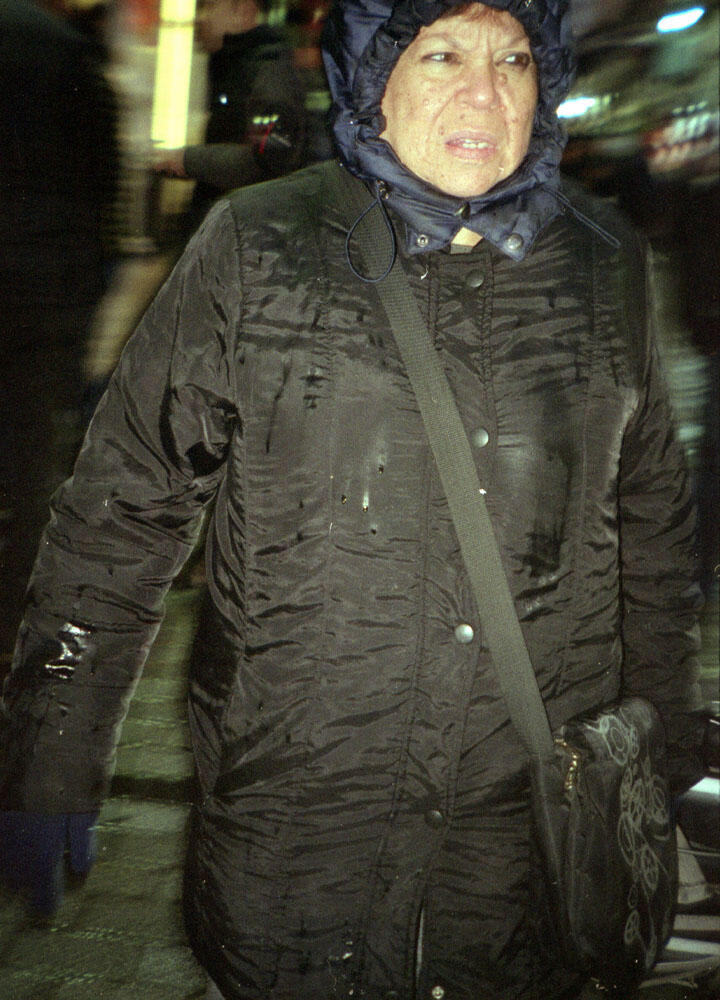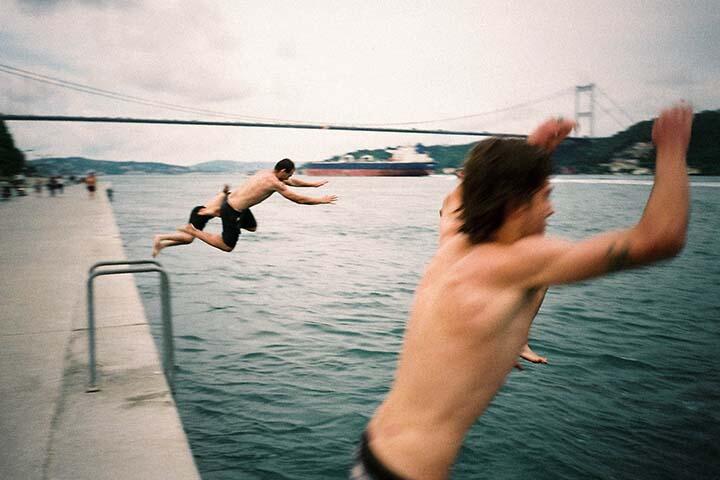ŞİP ŞAK
Sketches of daily chores
GREETINGS FROM INSTANBUL
Who are you, and what do you do?
My name is Tolga Bölükbaşı, but my friends also call me Şipşak. I grew up in a small bavarian town. My two passions, skateboarding and photography saved me from an uneventful life in this village. Not much has changed since then, except that the environment I document and the love for my passions has grown.
Especially when I lived in Istanbul, the passion for photography and skating grew, thanks to the community there. We have an Instapage on which we document life at the skate spots of Istanbul, I can only recommend everyone to throw an eye on it. The page is called 'Yıllar Ziyan' which translated means something like "wasted years".
You capture both the life of skaters and the life of elderly people. What draws you towards the two?
I love to document my environment and the everyday life of the communities to which I belong. Therefore, it is not surprising that especially skaters and elderly Turkish people end up in front of my lens. I love to talk to old people, especially our grandparents who came to Germany as guest workers. They just shine with the need to talk and can give you so much wisdom to take on your journey. Then again, I also love documenting the younger generation with their energetic vibe.
Do you do photography professionally, and are you enrolled in any projects atm?
Yes I am currently assisting some fashion brands especially in creative direction, and I am also really interested in gaining more experience in fashion photography. I studied architecture and since I live in Berlin I have turned my hobby into a profession and work as a freelance photographer and filmmaker and always try to combine my architectural eye with the visuals I create.
Why ŞİP ŞAK?
Şipşak is turkish and means something that we call „Ratz Fatz" in germany but its also the sound of a camera shutter. So on the one hand it means "being fast" but also photographers are called like this. This nickname was given to me by Adem Ustaoğlu, a skater and director legend from Istanbul. He said that because I always go crazy running around shooting everything I see, from now on I'll be called Şipşak. Especially since I can only be in Istanbul for a limited time, I try to document as much as I can while I' m there. At the skate spot I run back and forth and do the Şipşak dance. I see an interesting dede (grandpa) walking by and take a picture of him. While a homie is trying a trick and I shoot him, an interesting nene (grandma) runs by and I quickly take a picture of her too. I run around and take shots of everything and everyone I see and every now and then I also try to develop myself on the board. This is how most of the days are spent at Beşiktaş Meydan or all the other skate spots in Istanbul. "Şipşak dance @Bosphorus" that would actually be a good title for my first book about the turkish skate community haha.
You seem to enjoy skateboarding as well, do you enjoy being in front of the camera as much as you like being behind it?
My comfort zone is probably behind the camera but yes of course I try to improve my skills not only on the camera but also on the board. So every now and then a friend also points his lens on me when I skate.
What would you say is the biggest difference between photographing in Berlin vs. Istanbul?
In Turkey it is easier to offer a glimpse into the working-class neighborhoods of the cities because the work is not hidden behind large fences of industrial companies. On the contrary, you can find handcraft businesses almost everywhere in the old city centers. These working-class neighborhoods also attract me the most, because I myself grew up in a family of guest workers. In a weird way I also sometimes get the feeling that Im more welcome with a camera there. I think you just need different approaches in different cultures when you want to photograph people and in Berlin I just don't have as much experience as in Istanbul yet. On the one hand it is more difficult to document this class in Germany because most companies jump back when they hear the word camera. On the other hand it is also the way the portrayed people deal with it when they notice the camera. I usually try to document as authentically as possible, which means that the people should not even know that they are being photographed or filmed. Many people start to pretend when they realize that they are in front of the lens. That's why I love skate photography, because there's less posing and simulating.
@tolgaboeluekbasi











